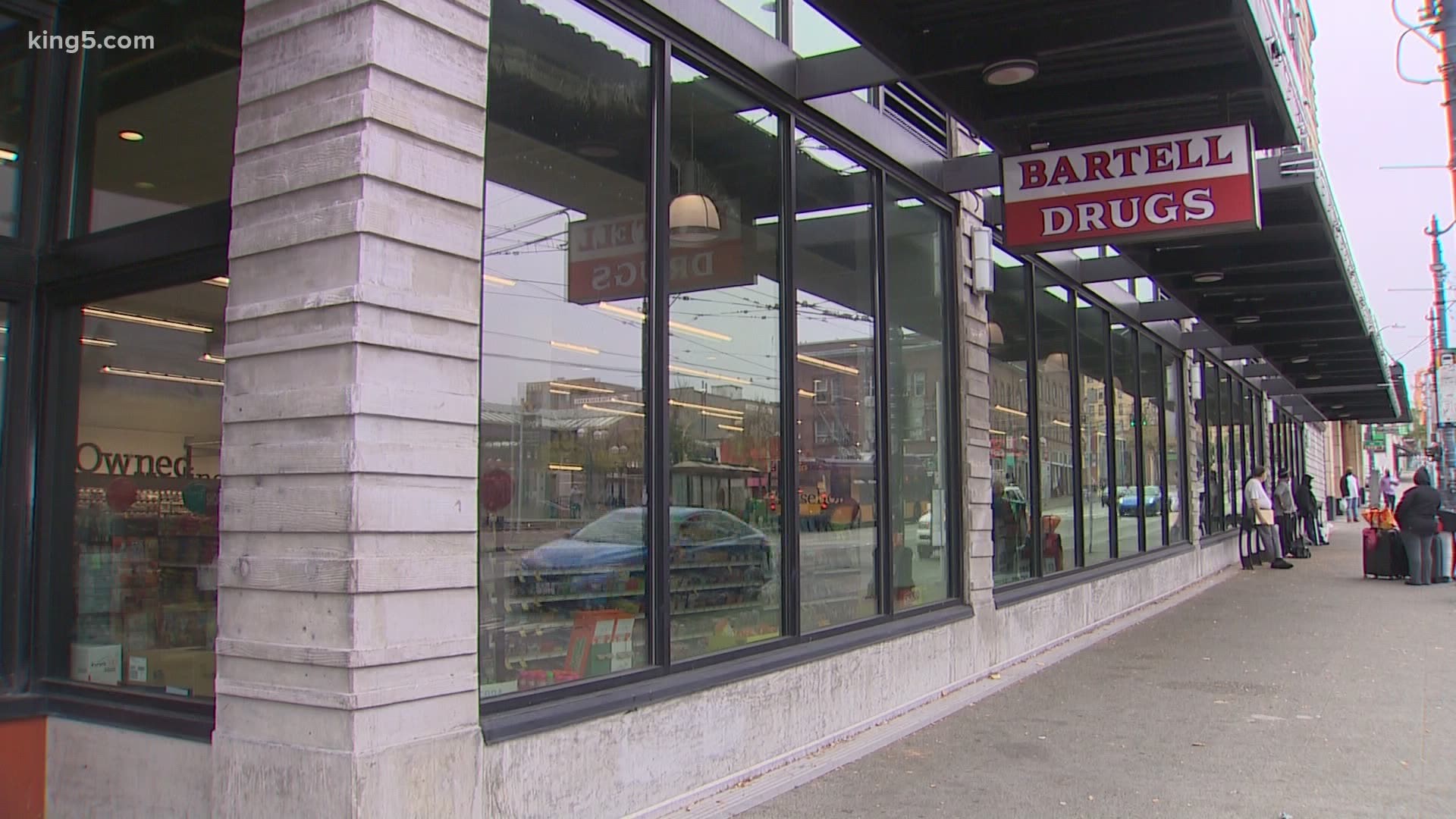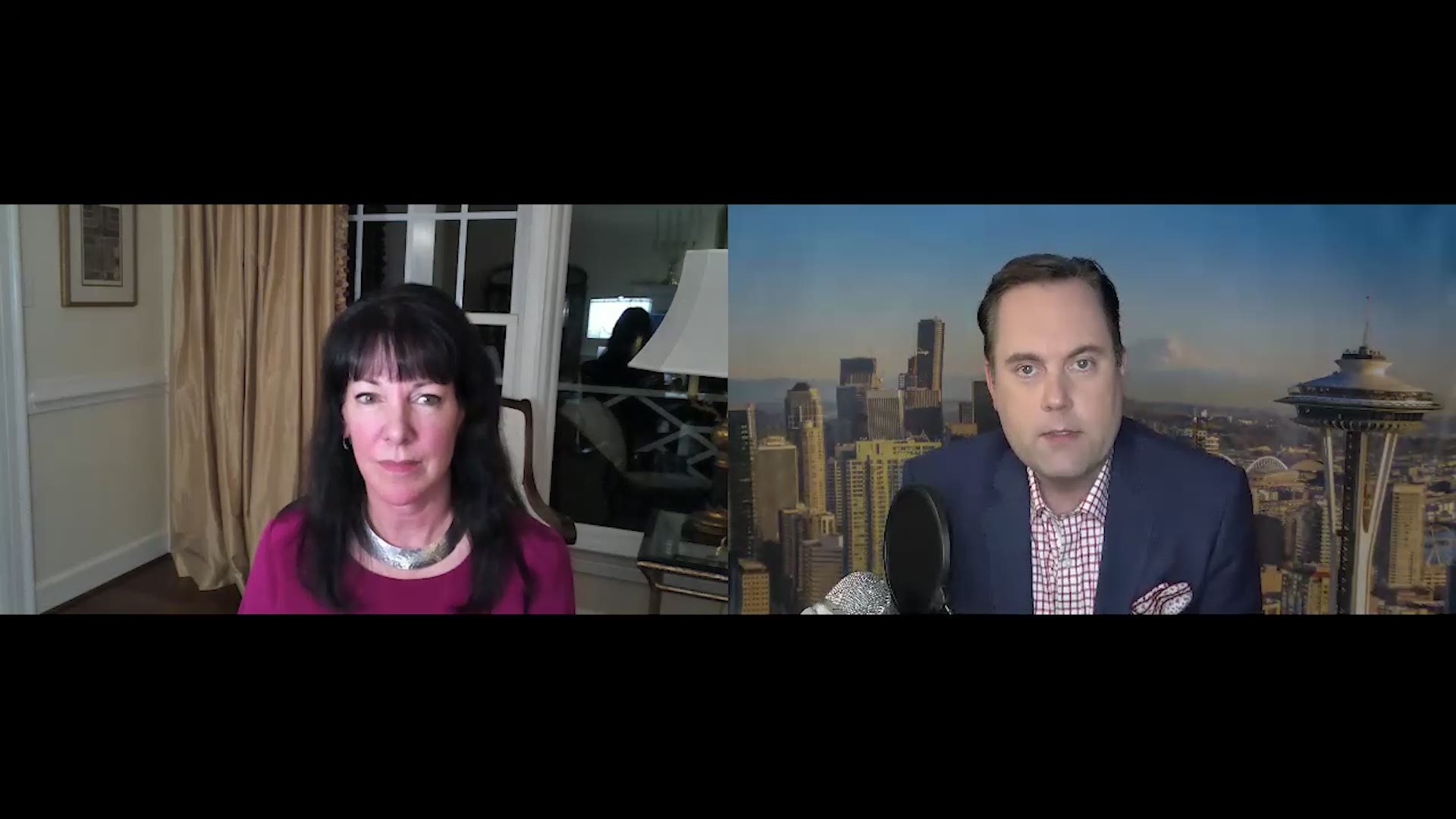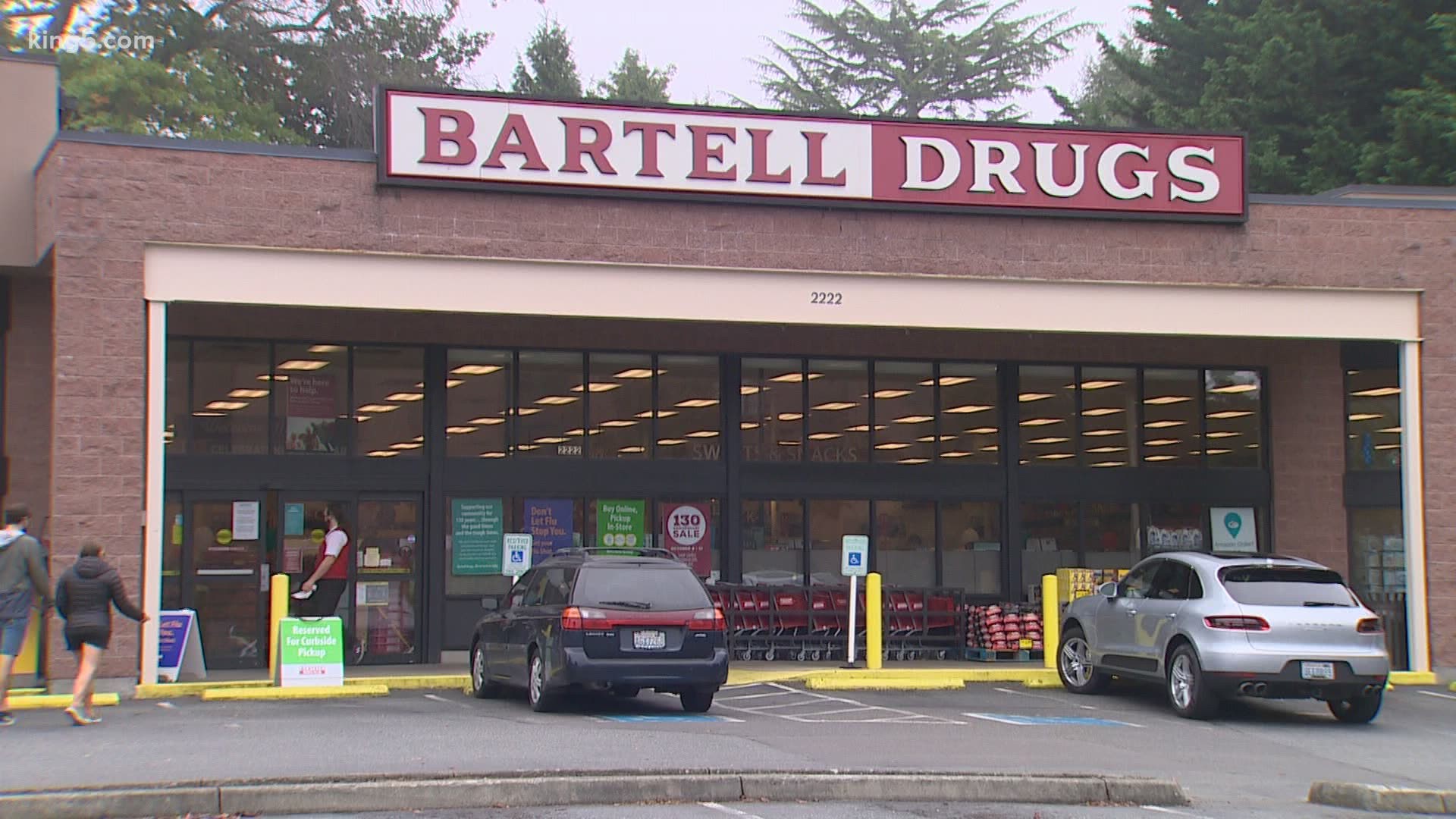SEATTLE — It's the end of an era for one of Puget Sound's longest running, homegrown companies.
The 130-year-old Bartell Drugs has been sold to Pennsylvania-based Rite Aid for $95 million in a deal that the two companies say will preserve the financial standing and brand name for the locally iconic drugstore chain.
Bartell Drugs’ history dates back to 1890 when George Bartell Sr. opened up his first pharmacy in Seattle's Central District. It has expanded to 69 stores in King, Pierce and Snohomish counties.
Rite Aid, which has been a competitor in and out of the market, is a Fortune 500 company based outside Harrisburg, Penn. with more than 2,500 stores in 19 states.
The "definitive agreement," as both companies called it, is expected to close in December.
Bartell Drugs CEO Kathi Lentzsch acknowledged the pandemic led to the company's decision to sell.
"When it hit, it made us realize that we needed to look at other ways to ensure our future was going to be here for Seattle,” said Lentzsch. “We have experienced changes in the pharmacy industry, as everybody's aware of what's going on with health care. We, of course, have seen business taxes rise in, you know, various taxes rise in Seattle, and COVID hits. And it was just one more thing, and we decided we had to figure out how to continue.”
Although she specifically mentioned Seattle taxes, Lentzsch says that the city's handling of the homelessness crisis, which led to the closure of a store in downtown Seattle, was not a factor in this particular decision to sell.
KING 5 asked Seattle Mayor Jenny Durkan what the city can do to prevent losing other locally based companies.
"We’ve got to recommit ourselves," Durkan said. "I'm going to continue to try to work with the city council to see if we can get some real programs in place so that as we come out of COVID, we're ready. And that we help our businesses get through this difficult time."
Rite Aid CEO Heyward Donigan spoke with KING 5 about the pending acquisition.
"They were for sale. So…their bankers or whatever approached us," Donigan said.
She stressed that the company has no immediate plans to close Bartell locations or lay off employees. However, there will be a consolidation of jobs at the corporate level.
"We certainly will have to look at that overlap,” she said. “It's a fairly small amount of their associates.”
Donigan estimated about 70 jobs could be impacted.
Donigan also says the publicly traded company will give Bartell Drugs more power.
"We have scale, we have purchasing power. And, you know, we obviously purchase a lot of drugs, merchandise and also the other synergies that would come with this kind of opportunity."
Donigan noted the recently developed Bartell Distribution Center in Des Moines is a centerpiece of the transaction.
Rite Aid's CEO also says the marketplace will allow for the two brand names to co-exist.
"It's very, was very clear to us that this was one of the most important growth markets for us,” Donigan said. “And so, and then along comes Bartell. I mean, I just couldn't believe that we could actually have the opportunity to, to be a part of and have Bartell to be a part of Rite Aid. It was just, from my point of view, kind of meant to be. And so the minute I heard about this, you know, I said, ‘Oh, this is a perfect fit.’ It's a fit of values, it's a fit of the right market and it's a fit of the right kind of merchandising strategies. That's one of the main reasons also that we don't want to change the brand."
Donigan lived in Seattle for eight years prior to her position at Rite Aid and says she understands the regional needs.
Lentzsch agrees.
"I believe she's really going to nurture the business for us," she said, adding, "Pharmacy benefit managers that have made it harder for a mid-sized drugstore chain to survive in this environment, and somebody the size of a company, the size of Rite Aid, can bring things to us that we would not be able to have otherwise."
Still, after 130 years, there will at least be a change in the corporate address and probably a few customers feeling wistful about that fact alone.
"I think that's a good question. We, again, believe our customers will see very little change,” said Lentzsch. “The new strategy that the Rite Aid team is implementing for their company as a whole is very similar to what we already do. So, and they understand our need to, our desire to be a local neighborhood pharmacy. That's what they want to be.”




